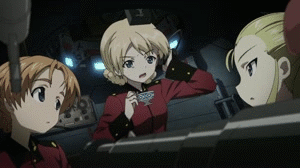HOME | DD
 history-nerd — A different choice
history-nerd — A different choice

Published: 2012-12-12 15:44:17 +0000 UTC; Views: 2275; Favourites: 28; Downloads: 9
Redirect to original
Description
What if the largely forgotten yet critically important Union General George H. Thomas, a Southerner who decided to side with the Federal forces at the beginning of the American Civil War, had followed the other Southerners and had offered his sword to the new government?What if, in 1863, instead of being led by a competent but quarrelling General Bragg, the Army of Tennessee had been led by a highly competent AND beloved General Thomas?
This is the answer I believe would be more probable : instead of wasting the best chance any Confederate Army had in the whole war, as the arguing between generals historically led to, Thomas would have destroyed the Army of the Cumberland without a hitch. I don't know if that would have led to a different outcome to the conflict, but it would have gained some more glory for him.
The Union was very lucky that Thomas stood loyal to Washington D.C., yet never properly honoured him as he deserved. What a shame.
Related content
Comments: 9

Thomas is one of those generals that only Civil War afficionodos and scholars realize were better than most people are aware of. It was more than his stand as the "Rock of Chickamauga" that saved Rosecrans' army. It was his victory at Mill Springs / Logan's Cross Roads in January 1862 (arguably the North's first impressive victory of the war, his firm support of Rosecrans at Murfreesboro / Stone's River in December 1862 - January 1863, his men's work at Missionary Ridge (at Chattanooga) against Bragg's position in November 1863), and his annihilation of the remainder of Hood's army at Nashville in December 1864. One can make the claim he was the best Northern General to hold an independent command in the war (either including Grant, Sherman, and Sheridan, or without those three). Unfortunately Grant and Sheridan disliked him (he may have shown both up) and John Schofield resented how his victory at Franklin "softened up " Hood's army for Thomas's final blow.
Fortunately, George Thomas had a fine character, and did not publicly show any reaction to any of this neglect. Which adds to posthumous praise for him.
Interestingly, if one wishes to note historical irony, only the same afficioinados and scholars recognize that Bragg's retreating army after Missionary Ridge were saved by the fierce stand of General Pat Cleburne, who could be called "the Rock of Chattanooga". He too was a really fine general, unfortunately sacrificed (needlessly) with eight other Confederate generals at Franklin.
👍: 0 ⏩: 1

At this point, what can I do but to say I wholeheartedly agree with you?
👍: 0 ⏩: 0

I simply go to Wikipedia and use the "sandbox" tool; you can practice making a page, and using such templates.
👍: 0 ⏩: 1

No problem, knock yourself out!
👍: 0 ⏩: 1

well it would have lead to Kentucky seceding form the union. As this battle was the turning point of that. It also might have caused Grant to pull out of the Mississippi area as the supply lines would have been compromised as southern raiders could have gone into Ohio and cut the lines.
👍: 0 ⏩: 1

I don't know if we can call this battle the turning point of the war for Kentucky... weren't the games set in the Commonwealth when Chickamauga happened? I mean, after Bragg's and Kirby Smith's invasion and the battle of Perryville, the Confederates pretty much gave up in there.
Another possibility would have been to lose Kentucky early in the war, because in OTL Thomas was posted there in 1861 and defeated a force in the Cumberland Gap, thus weakening the Confederates' position along Johnston's defensive line. Without him, and with him commanding an early attack, the Union might have had to run.
👍: 0 ⏩: 0


























